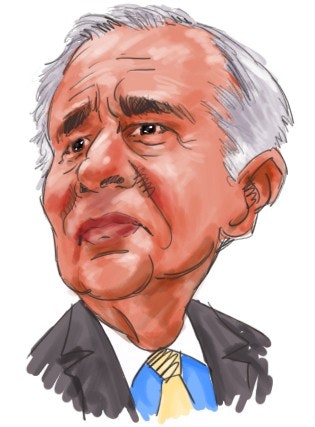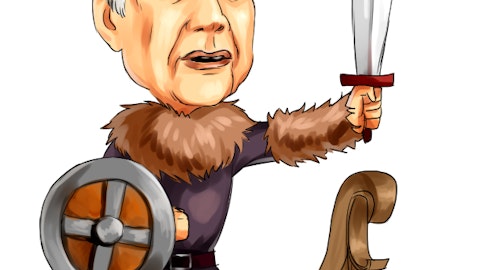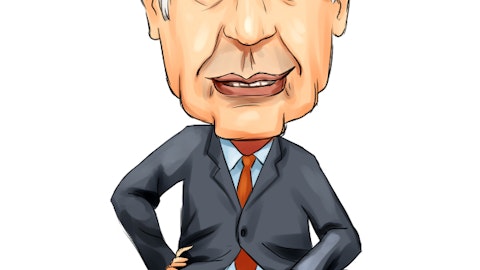Shares of Mountain View, California-based VIVUS, Inc. (NASDAQ:VVUS) have jumped by more than 11% today on the news that IEH Biopharma LLC, a subsidiary of legendary activist investor Carl Icahn‘s Icahn Enterprises L.P. (NASDAQ:IEP) has announced a tender offer for any and all of the Outstanding 4.50% Convertible Senior Notes due 2020 of the company. These Notes can convert to 67.3 shares of VIVUS, Inc.’s stock, and IEH Biopharma LLC will be paying $680 for each $1,000 of principal amount of Notes that are validly tendered and not validly withdrawn. In simpler terms, Mr. Icahn is willing to pay $680 for each note of the company that pays an interest of 4.5% and which an investor originally bought for $1,000. Assuming that Mr. Icahn is able to buy all of the notes of the company, he can convert them to around 16.75 million shares of VIVUS, Inc. (NASDAQ:VVUS) and become its largest shareholder, thereby giving him a chance as an activist to bring about change in the company. However, even if he wants to be a passive investor, by buying all 250,000 notes the company has underwritten at $680 each or $170 million in aggregate, he can collect $44 million in interest that the notes will pay over the next four years and at the end of the term will get $250 million in either cash or stock.

Hedge funds and other big money managers like Icahn tend to have the largest amounts of their capital invested in large and mega-cap stocks like Apple Inc. (NASDAQ:AAPL) because these companies allow for much greater capital allocation. That’s why if we take a look at the most popular stocks among funds, we won’t find any mid- or small-cap stocks there. However, our backtests of hedge funds’ equity portfolios between 1999 and 2012 revealed that the 50 most popular stocks among hedge funds underperformed the market by seven basis points per month, showing that their most popular picks and the ones that received the bulk of their capital were not actually their best picks. On the other hand, their top small-cap picks performed considerably better, outperforming the market by 95 basis points per month. This was confirmed through backtesting and in forward tests of our small-cap strategy since August 2012. The strategy, which involves imitating the 15 most popular small-cap picks among hedge funds has provided gains of 118%, beating the broader market by over 60 percentage points through the end of August (see the details).
Follow Carl C. Icahn's Icahn Capital LP
VIVUS, Inc. (NASDAQ:VVUS) is not new to garnering interest from activists. In 2012, Icahn’s protege and the founder of Sarissa Capital Management, Alex Denner, joined a slate of activists that were engaged in a battle at the company and later became a member of VIVUS’s Board. As of June 30, 2015, Sarissa Capital Management was the second-largest shareholder of VIVUS among the hedge funds covered by Insider Monkey, owning above 2.57 million shares. The top position in terms of the company’s shareholders as of June 30 among the hedge funds we track was commanded by Conan Laughlin‘s North Tide Capital, which owned 12.5 million shares of VIVUS. Jim Simons‘ Renaissance Technologies was one of the firms that initiated a stake in VIVUS during the April-June period by buying slightly under 500,000 shares.
It’s not hard to understand why Mr. Icahn likes the convertible senior notes of the company. As mentioned above, whether he goes activist on it or remains a passive investor, it will turn out to be a win-win deal for him. The more than 50% drop that VIVUS’s shares have endured this year make it highly lucrative at these levels. VIVUS, Inc. (NASDAQ:VVUS) made headlines in 2012 when its anti-obesity drug, Qsymia, which is still its flagship product, was launched. However, that excitement was short-lived as even after launching nine months prior to the emergence of a new competitor, Qsymia failed to make a mark and meet the sales expectations of analysts. Its sales have been declining continuously quarter-over-quarter and anti-obesity drugs by other drug makers have surpassed it in sales by quite a margin. Nothing that VIVUS, Inc.’s management has done in the past several quarters has been able to improve the sales of Qsymia or improve the overall health of the company, which perhaps explains why its market-cap prior to this tender offer announcement was nearly three-times lower than the cash and cash-equivalents it held in its books. Before this announcement was made, the best hope for VIVUS, Inc.’s shareholders was either the company getting acquired by a big pharmaceutical major or the erectile dysfunction drugs from the company, Stendra and Spedra, became major successes. Even though none of those things have happened, the interest of a renowned investor in the stock has the potential to allow it to see better days ahead.
Disclosure: None



